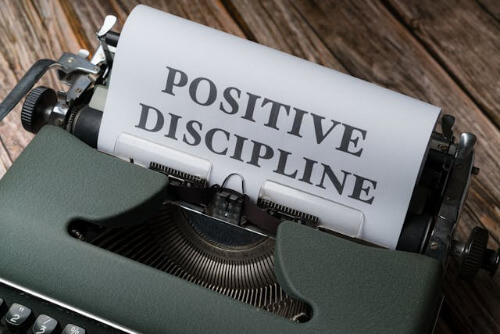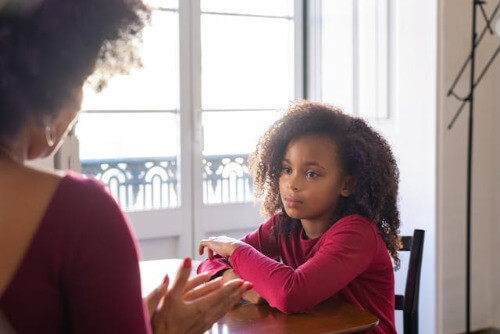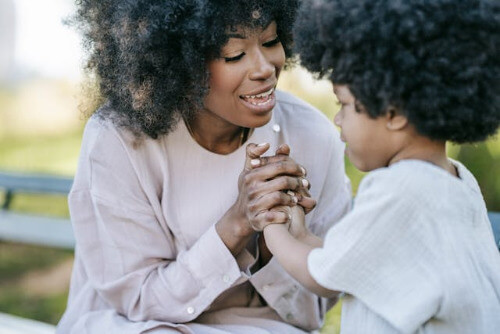What Is Positive Discipline? A Parent’s Guide to Raising Respectful, Confident Kids
What is positive discipline? Parents everywhere are looking for a way to guide their children without yelling, punishing, or giving in every time. You want your child to respect you — not fear you. You want them to grow up kind, responsible, and confident.
What Is Positive Discipline?
Rather than using punishment, positive discipline is a parenting approach that focuses on teaching and guiding them. Rather than asking, “How do I control my child?” it asks, “How can I teach my child the skills they need to do better next time?”
It was popularized by Dr. Jane Nelsen through her Positive Discipline books and programs, and it’s rooted in the belief that children thrive when they feel connection, belonging, and respect.
In simple terms: Positive discipline is about being kind and firm at the same time.
- When you are kind, you are showing empathy and respect for your child’s feelings.
- Firmness sets clear, consistent boundaries so they know what’s expected.
Unlike traditional discipline that may rely on fear, threats, or punishment, positive discipline empowers children to learn self-control, responsibility, and problem-solving skills.
Why Parents Are Turning to Positive Discipline
If you’re reading this, chances are you’ve already sensed that punishments and rewards don’t always work long-term. Many parents are realizing:
- Time-outs sometimes just create resentment.
- Yelling makes us feel guilty and doesn’t teach better behavior.
- Rewards can lead kids to expect prizes instead of learning intrinsic motivation.
Positive discipline is different, kids learn from the mistakes they make and strengthen their bond with you. It’s not about “letting them get away with it” — it’s about guiding them to make better choices next time.

The 5 Principles of Positive Discipline
Here are some core principles most experts agree on:
1. Connection First
- Kids are more likely to listen and cooperate when they feel loved and understood. Before correcting, connect. A hug, eye contact, or even saying “I get why you’re upset” can make a big difference.
2. Mutual Respect
- Respect goes both ways. Just as we expect our children to respect us, we need to model respect toward them. No shaming, belittling, or humiliating.
3. Kind AND Firm
- Balance is everything. Too kind without firmness can lead to chaos. Too firm without kindness can break trust. Positive discipline finds the sweet spot.
4. Focus on Solutions, Not Punishments
- Instead of “How can I make them pay for this mistake?” the focus becomes “How can I help them learn from this mistake?”
5. Teach Valuable Skills
- Every misbehavior is a teaching opportunity. Skills like problem-solving, patience, empathy, and cooperation are learned through guidance, not fear.
Examples of Positive Discipline in Action
Theory is nice, but what does this look like in real life? Here are a few everyday examples:
- Instead of: Yelling at your child for leaving toys all over the floor.
Try: Saying, “I see toys everywhere. Let’s clean up together, and then you can play again tomorrow.”
- Instead of: Punishing your child for forgetting homework.
Try: Asking, “What do you think will help you remember next time?” (and maybe brainstorming together to set a reminder system).
- Instead of: Sending your child to their room for fighting with a sibling.
Try: Sitting them both down and saying, “I hear both of you are upset. Let’s figure out how you can solve this problem in a way that works for both of you.”
These moments don’t excuse misbehavior — they transform it into a learning opportunity.
Benefits of Positive Discipline

Parents who practice positive discipline often notice changes not just in their kids, but in themselves, too. Here are some of the biggest benefits:
- Less Power Struggle: Your home feels calmer, with fewer battles over control.
- More Cooperation: Kids listen better when they feel respected and included.
- Stronger Relationship: Trust grows when discipline doesn’t damage connection.
- Life Skills: Kids learn responsibility, self-discipline, and problem-solving.
- Confidence in Parenting: You’ll feel more grounded knowing you’re guiding instead of punishing.
Common Concerns Parents Have
It’s natural to wonder:
- “Doesn’t this make kids too soft?”
Actually, no. Positive discipline is firm, not permissive. Kids still have rules and boundaries, but they’re enforced respectfully.
- “What if my child just ignores me?”
Sometimes kids do! But positive discipline isn’t about one perfect conversation — it’s about consistency over time. Respect and patience build cooperation.
- “I wasn’t raised this way. Is it too late to change?”
Not at all. Children of all ages can benefit from positive discipline. Even teenagers respond when parents shift from control to connection.
Practical Tips to Get Started
- Pause Before Reacting – Instead of yelling, take a breath and respond calmly.
- Set Clear Expectations – Kids thrive when they know the rules.
- Use Natural Consequences – If a child forgets their lunch, the natural consequence is feeling hungry until next time. This teaches responsibility without shaming.
- Involve Kids in Problem-Solving – Ask, “What can we do differently next time?”
- Model the Behavior You Want – Show respect, patience, and self-control, and they’ll mirror you.

Resources to Explore
If you’d like to go deeper, here are some great resources:
- Books: Positive Discipline by Jane Nelsen
- Workshops & Courses: Many online programs offer training for parents and teachers.
- Support Groups: Parenting forums and local communities can provide encouragement and ideas.
Final Thoughts on What is Positive Discipline?
Positive discipline gives us a framework to raise respectful, responsible kids while keeping the connection strong.
So next time you’re in the middle of a meltdown or a homework battle, remember: You don’t need to control every moment. You just need to guide with kindness and firmness, trusting that each challenge is a chance to teach.
Positive discipline isn’t just about raising better kids. It’s about becoming the parent we always hoped we could be.























New! Comments
Have your say about what you just read! Leave me a comment in the box below.